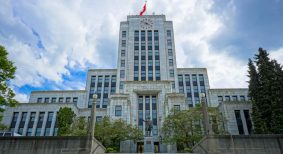B.C.’s economy is expected to remain steady after slower economic growth through 2023 due to global inflation and higher interest rates, according to projections from private-sector forecasters.
Each year, B.C.’s finance minister meets with the Economic Forecast Council (EFC), a 13-member council of private-sector forecasters from throughout Canada, in preparation for the next year’s budget. This is the second year that an additional set of discussions was added, providing an opportunity to consult with an Environmental, Social and Governance (ESG) Advisory Council to explore how the provincial government can continue to build a more inclusive, sustainable economy and support well-being in British Columbia.
The EFC anticipates the province’s economy will grow by 2.9 per cent in 2022 and 0.4 per cent in 2023; slower than their January 2022 forecasts of 4.2 per cent and 2.7 per cent, respectively.
The updated figures are similar to what was presented in the province’s Second Quarterly Report. Real gross domestic product (GDP) growth is then expected to pick up, with an increase of 1.6 per cent in 2024, followed by gains of 2.3 per cent, 2.3 per cent and 2.1 per cent in 2025, 2026 and 2027, respectively.
“We’re entering this period of slower growth and challenging global economic times in a strong position to continue supporting people, because B.C.’s economy grew more than most last year,” said B.C. Minister of Finance Selina Robinson. “We’ll use the resources we have to address the issues that matter most to people, including housing, health care and building a sustainable economy that works for everyone – but no matter what is on the horizon and no matter what the numbers show, this government will continue to be here to support people.”
Forecasts and feedback from the two councils will be used to inform the next provincial budget, which will be released on Feb. 28, 2023.










